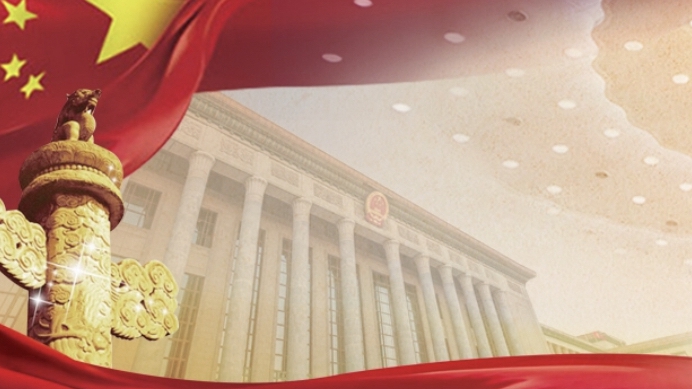01:28

China's top legislature, the National People's Congress (NPC), is to open its annual session in less than a week. Along with it is a session of the country's top political advisory body – the Chinese People's Political Consultative Conference (CPPCC). They are also known as the Two Sessions. The annual gathering of thousands of delegates and advisers is a pivotal political event in China.
Fu Jun, professor of political economy and public policy, and academic dean of the Institute of South-South Cooperation and Development (ISSCAD), said the Two Sessions have been delayed for two months because of the COVID-19 pandemic, so global public health issues shall be the main topic.
Fu added that other areas, such as climate change, poverty alleviation and economic growth, will also be on the agenda. He believes that in these critical times, China's reform and opening-up should be carried out more cautiously, and a sophisticated civil code will be vital in terms of reforming market-oriented economy.
Agreeing with Fu, Dr. Zhao Hai, research fellow at the Chinese Academy of Social Sciences, said that 2020 is a significant year for China as it is the deadline of the 13th Five-Year Plan (FYP, 2016-2020) as well as the beginning of the next FYP. This is particularly the case because China has set a goal of achieving moderately prosperous society in all respects by 2020.
Dr. Zhao explained that "now there are two central issues of these two special meetings. The first one is to keep controlling the outbreak of the coronavirus and making a safe environment for people to come back to work. And the second one" is to revive and stabilize domestic economy with fiscal and monetary policies.
China's economic growth target for 2020?
According to Dr. Zhao, the central government has turned its economic goal from a fixed target into a range. And given the impact of the pandemic, it is very difficult to predict the ultimate growth rate of China's economy.
Dr. Zhao said China has faced not only domestic economic pressure, but uncertainties from around the world. Therefore, the current focus of the government is to maintain economic stability. He added that the government has already launched policies to ensure the protection and stability in six key areas, including employment, supply chain, people's livelihood, food security and others.
While Fu believed that China is no longer a planned economy, so the FYP should be regarded as a guidance. He also emphasized that the government should help small and medium-sized enterprises survive.
China's goal of ending absolute poverty?
Although the coronavirus pandemic has brought huge impact on China, Dr. Zhao Hai firmly believes that China will achieve the goal of eradicating absolute poverty this year, as China's poverty rate has been reduced from over 10 percent to less than 0.6 percent in the past 10 years.
However, Dr. Zhao pointed out that poverty reduction process should be a long-term goal. In 2020, because of the coronavirus, some people lost their jobs, which might push them back into poverty. Therefore, poverty alleviation will continue to be the priority of the Chinese government.
Dialogue is a prime time daily English talk show on CGTN. The 30-minute talk show covers a wide range of domestic and international topics, providing a balanced and critical perspective on current affairs and analysis within the framework of cross-cultural and multi-disciplinary comparisons.
Schedule: Monday-Sunday
Time (GMT): 0330, 1130, 1930
(If you want to contribute and have specific expertise, please contact us at opinions@cgtn.com.)